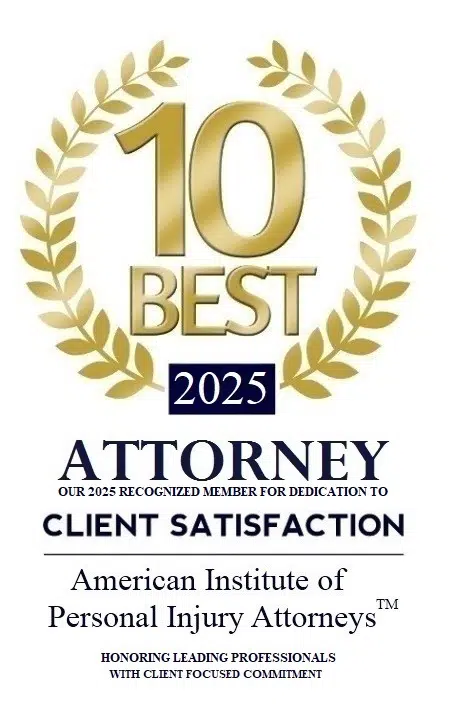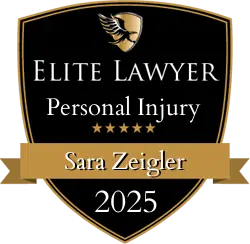What Do Statutes of Limitations Mean?
Statutes of limitations are laws that establish the timeframe within which a lawsuit must be initiated after an alleged offense. These laws exist to preserve the fairness and efficiency of our legal process by ensuring cases are brought forward while evidence is still fresh and reliable.
Failing to file within the statute of limitations generally leads to the loss of the right to sue. Thus, it is essential to seek legal counsel promptly if you believe you have a claim, as they can guide you on the specific statutes of limitations and ensure your lawsuit is filed within the set time frame. Understanding and adhering to these statutes of limitations is key to preserving your legal rights and effectively seeking justice.
Basic Framework
For many civil cases in West Virginia, the statute of limitations is two years. However, some are shorter, and some are longer.
This means that if you believe you have a valid legal claim, you generally have two years from the date of the incident to either settle your claim or file a lawsuit. This two-year rule applies to a wide range of cases, including personal injury, negligence, fraud, toxic tort, wrongful death, and product liability. However, there are some exceptions to this general rule, which we will explore further.
While the limitation period provides an outside limit to the time to bring a claim, it is never a good idea to wait until the statute date is approaching to begin the process. Many things should be done to develop a claim in advance of, or instead of, filing a lawsuit, and waiting until the statute of limitation date is near to hire counsel will deprive your attorney of the opportunity to do some of those things in a timely manner, to your potential detriment.
List of Statutes of Limitations for Different Cases
Here is a summary of some different types of cases and their respective statutes of limitations in West Virginia. Please note that these guidelines are subject to change and may be influenced by specific circumstances. Therefore, always consult with an attorney to understand how these rules apply to your specific situation.
- Personal Injury: 2 years
- Negligence: 2 years
- Fraud: 2 years
- Toxic Tort (e.g., Camp Lejeune Toxic Water Lawsuit): 2 years
- Wrongful Death: 2 years
- Product Liability: 2 years
- Medical Malpractice: 2 years from discovery, but not more than 10 years from the date of injury
- Nursing Home Malpractice: 1 year
- Libel/Slander: 1 year
Special Cases
In examining the complexities of the statute of limitations, it’s essential to understand the nuances and exceptions that apply in specific scenarios, such as medical malpractice cases and situations involving plaintiffs with legal disabilities.
Medical Malpractice
In the case of medical malpractice, the statute of limitations is also two years, but this period can begin either from the date of the injury or from the date the injury was discovered. This important caveat recognizes that some injuries may not be immediately apparent. However, an action can only be commenced ten years after the date of injury, regardless of when it was discovered. If a nursing home is involved, the statute of limitations mandates a one-year period.
Summary
- Standard Period: Typically, the statute of limitations is two years.
- Discovery Rule: This period may start from either the date of the injury or the date the injury was discovered. This is significant because some injuries might not be immediately evident.
- Absolute Limit: Despite the discovery rule, a lawsuit must be initiated within ten years of the date of the injury, regardless of when it was actually discovered.
- Nursing Home Exception: In cases involving nursing homes, the statute of limitations is reduced to one year.

Legal Disabilities
Legal disabilities can also impact the statute of limitations. In cases involving plaintiffs with a legal disability, the statute of limitations begins when the disability ends. For children, this usually means their 18th birthday. This rule can delay the start of the statute of limitations for a maximum of 20 years. The period is shorter for medical malpractice cases.
Summary
- Delayed Start: For plaintiffs with a legal disability, the statute of limitations doesn’t begin until the disability ends.
- Children’s Cases: For children, this usually means the countdown starts on their 18th birthday.
- Maximum Delay: The statute of limitations can be delayed for up to 20 years, but this duration is less for medical malpractice cases.
Consequences of Exceeding the Statute of Limitations
If a lawsuit is filed after the statute of limitations period has expired, the defendant can use this as a defense to have the case dismissed. This applies to both civil and criminal cases. The court typically does not enforce the statute of limitations on its own but relies on the defendant to raise it.
If the defendant does not, they may lose the right to use this defense. There are some exceptions to these rules, including situations involving minors, incapacitated individuals, or cases of fraud where the discovery could be delayed. However, these exceptions vary by jurisdiction and type of case.
Important Legal Concepts
There are a few other concepts that are important to understand when considering the statute of limitations in West Virginia. The state operates under a modified comparative negligence law, meaning that if a plaintiff is more than 50% to blame for their injuries, they cannot recover damages. If they are less than 50% to blame, the award is reduced by their percentage of fault.
No-Fault State
West Virginia also does not have a no-fault law, does not generally offer immunity to charitable organizations, and allows for punitive damages in cases where the injury is inflicted intentionally or with malice, willfulness, or wanton disregard of the plaintiff’s rights. However, pleading must be done with care to avoid inadvertently opening the case to the insurance company’s assertion of an intentional-act coverage exclusion. Experienced personal injury attorneys in West Virginia will be aware of this trap and how to avoid it.

Benefits of Prompt Legal Action and Consultation with an Attorney
When facing a legal matter, timing can be a crucial factor. Acting promptly and consulting with an attorney can bring numerous benefits that can positively impact the outcome of your case, such as:
- Timely Evidence Gathering: Acting quickly allows for the collection of fresh evidence, which can be crucial in proving your case. Over time, evidence may be lost, and witnesses’ memories may fade.
- Avoiding Statute of Limitations Issues: Taking action promptly helps avoid any potential issues with the statute of limitations, ensuring your case can be heard.
- Early Legal Advice: Consulting with an attorney at an early stage provides valuable guidance on the strength of your case, potential damages, and the best legal strategy to pursue.
- Peace of Mind: Starting the legal process sooner can provide psychological relief, as you’re actively addressing the issue rather than prolonging the uncertainty.
- Negotiation and Settlement: Early action often opens up opportunities for negotiation and settlement, potentially avoiding the need for a protracted legal battle.
The sooner you engage with an attorney and start taking legal action, the better your chances of protecting your rights, preserving evidence, and ultimately, succeeding in your legal endeavor. Remember, justice delayed is often justice denied.
Why Legal Advice Matters
Understanding the statute of limitations and other legal guidelines can be complex and challenging. That’s where the experience of our West Virginia law firm, Kaufman & McPherson, PLLC, comes in. Our team of attorneys is well-versed in the intricacies of West Virginia law and how to navigate it. Contact us today for a free case review and consultation.








